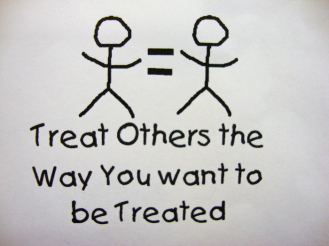
Labor & Employment
National Labor Relations Act (NLRA)
Railway Labor Act of 1926 (RLA)
Immigration Reform and Control Act (IRCA)
Government contracts – Executive Order 11246
Department of Labor’s Office of Federal Contract Compliance Programs (OFCCP)
Vocational Rehabilitation Act of 1973
Vietnam Era Veteran Readjustment Assistance Act
Occupational Safety and Health Act (OSHA)
Fair Labor Standards Act (FLSA)
Department of Labor – good source of FLSA law
Worker Adjustment and Retraining Notification Act (WARN)
National Labor Relations Act (NLRA) aka Wagner Act
National Labor Relations Board (NLRB)
Office of Personnel Management (OPM)
Federal Labor Relations Authority (FLRA)
Merit System Protection Board (MSPB)
29 CFR PART 1614 - FEDERAL SECTOR EQUAL EMPLOYMENT OPPORTUNITY
Professional Air Traffic Controllers’ (PATCO)
National Air Traffic Controllers Association (NATCA)
Employment Law Handbook - Arizona
Industrial Commission of Arizona
US Department of Labor - Wage and Hour Division - FLSA
Bureau of Labor Statistics - Aircraft Mechanics
Adobe Acrobat document [47.6 KB]
Arizona Magazine - January 2022
Equal Employment Opportunity Commission
Federal Equal Employment Opportunity Law - Recent Developments
Adobe Acrobat document [15.5 MB]
The Age Discrimination in Employment Act (ADEA)
The Genetic Information Nondiscrimination Act of 2008 (GINA)
RACE/COLOR: Discrimination occurs when someone is treated unfavorably because of race, characteristics associated with race (such as hair texture or facial features) or skin color/complexion.
This can also involve treating someone differently because that person is married to or associated with an individual of a certain race or color.
RELIGION: Discrimination happens when someone is treated unfavorably because of their religious beliefs.
The law protects members of traditional, organized religions as well as those who have sincerely held religious, ethical, or moral beliefs.
This can also involve treating someone differently because that person is married to or associated with an individual who is a member of a particular religion.
SEX/GENDER: Treating someone unfavorably becasue of that person's sex is discrimination.
Federal protection extends to transgender individuals, gender identity, and gender expression.
Gender identity is an individual's internal sense of gender.
Gender expression is the way an individual expresses themself through behavior or dress.
An individual's gender expression may align with or contradict commonly-accepted gender roles.
Some states may also protect marital status.
VETERANS: Treating someone unfavorably because of their status as a military veteran is discrimination.
SEXUAL ORIENTATION: The Supreme Court has ruled that sexual orientation is covered under federal sex discrimination law.
DISABILITY: A physical or mental disability is a protected characteristic.
Discrimination occurs when a qualified individual with a disability is treated unfavorably because of that disability.
This also covers those with a history of a disability (such as a disease that is controlled or in remission) and may include short-term physical or mental impairment.
Some states may protect current medical conditions.
The law requires the employer to provide reasonable accomodations to an employee or job applicant with a disability, unless doing so would cause significant difficulty or expense.
Many states and localities go beyond federal law and safeguard additional groups.
Common state protections include:
- marital status
- political views
Employers may also protect additional groups under its policy.
Here in Arizona, the following cities offer LGBTQ+ protection:
Avondale
Chandler
Flagstaff
Gilbert
Glendale
Mesa
Peoria
Phoenix
Scottsdale
Tempe
Tucson
The actual codes are in the slide shows below, starting with the State laws or ARS:
Equal Employment Opportunities Act of 1972
On June 15, 2020, the Supreme Court of the United States issued its landmark decision in the case Bostock v. Clayton County, which held that the prohibition against sex discrimination in Title VII of the Civil Rights Act of 1964 (Title VII) includes employment discrimination against an individual on the basis of sexual orientation or transgender status.
In Bostock v. Clayton County, Georgia, No. 17-1618 (S. Ct. June 15, 2020), the Supreme Court held that firing individuals because of their sexual orientation or transgender status violates Title VII’s prohibition on discrimination because of sex. The Court reached its holding by focusing on the plain text of Title VII. As the Court explained, “discrimination based on homosexuality or transgender status necessarily entails discrimination based on sex; the first cannot happen without the second.” For example, if an employer fires an employee because she is a woman who is married to a woman, but would not do the same to a man married to a woman, the employer is taking an action because of the employee’s sex because the action would not have taken place but for the employee being a woman. Similarly, if an employer fires an employee because that person was identified as male at birth but uses feminine pronouns and identifies as a female, the employer is taking action against the individual because of sex since the action would not have been taken but for the fact the employee was originally identified as male.
The Court also noted that its decision did not address various religious liberty issues, such as the First Amendment, Religious Freedom Restoration Act, and exemptions Title VII provides for religious employers.
In July 2022, a federal district court preliminarily enjoined the EEOC from implementing this document as to plaintiffs in Tennessee. et al. v. U.S. Dep’t of Educ. et al., Case No. 3:21-cv-308 (E.D. Tenn.).
In October 2022, a federal district court vacated this document in Texas v. EEOC et al., 2:21-CV-194-Z (N.D. Tex.).
Equal Employment Opportunity Commission (EEOC)
Americans with Disabilities Act (ADA)
Wrongful acts: For discrimination to occur, there must generally be some type of wrongful act based on a protected category.
Common situations include:
- firing or demotion
- denying a raise, promotion, or benefits
- unequal pay
- denying leadership opportunities
- denying access to training, educational programs, or professional development
- preventing someone from using institution facilities or services
- failure to hirea job applicant
- failure to make reasonable accomodations
- different treatment based on pregnancy
- policies or practices with disparate impact (such as requiring female facilities employees to pass a physical agility test)
If someone is discriminated against, they may be entitled to legal remedies including:
- reinstatement
- front pay, back pay, or other expenses
- emotional and punitive damages
- legal fees
Harassment: As a group, non-employees are also protected.
This could include contractors, parents, students, volunteers, and even visitors; basically anyone who is not empployed by your institution.
Anyone can be a harasser: supervisors, co-workers, other employees, or a non-employee who has a business relationship with the institution.
Sexual harassment: a form of gender discrimination and typically includes unwelcome advances, requests for sexual favors, and other verbal or physical harassment of a sexual nature.
While frequently directed at women by men, sexual harassment can include women harassing men, men harassing other men, or women harassing other women.
Hostile environment: The most common type of harassment is a hostile environment.
There are 4 requirements for a hostile environment to exist.
The conduct must:
1. Be based on a protected category
A category protected by federal, state, or local law, or your institution's harassment policy.
2. Be unwelcome
If someone gives clues that comments or behaviors are unwelcome, then people should be sensitive to them
3. Be severe or pervasive
One or two minor incidents generally do not create a hostile environment.
But a continuing pattern of comments or emails that indicate bias and insensitivity could.
Some actions are so severe, they would immediately create a hostile environment.
4. Create a hostile environent, according to a reasonable person in the same position
In deciding whether conduct is offensive, we look not at what the complainant believes but rather what a reasonable person in the position of the complainant would believe, considering al the circumstances.
QUID PRO QUO: Exclusive to sexual harassment.
It's a latin term that means "this for that"
Commonly used when a person has to provide something to receive something from someone else.
Although now seen infrequently, quid pro quo sexual harassment occurs when an employee must provide sexual favors to receive a job benefit or to avoid some type of punishment.
Harassment can happen anywhere - does not need to take place in the actual workplace or even during work hours to exist - can occur away from the office, whether at off-site events, business trips, or retreats.
ELECTRONIC HARASSMENT: From email and social media to memes and even emojis, each year seemingly brings new ways for people to behave badly!
As continuing advances in technology and the COVID-19 pandemic have made clear, we spend a lot more time online than we once did.
Though just like there are rules governing behavior in the office, there are also rules about what's acceptable online.
Many people believe they have total privacy, but the reality is that anything posted or sent electronically can create a permanent record that can never truly be deleted.
Forwarding off-color jokes or showing racially or sexually offensive images are a sure way to create a hostile work environment.
It is also important to consider your tone in any online communications.
Others can sometimes take something you write or post the wrong way.
It's easy to be too casual, sending jokes or memes that some might find offensive.
It's important to remain as professional as you would in an in-person situation.
It's simple, never send anything that you would be embarassed t osee on the news or on your social media account.
WORKPLACE BULLYING: Bad or abusive behavior directed toward a co-worker regardless of whether they are a member of a protected group.
While generally not illegal, bullying has a negative effect on victims, co-workers, and your institution as a whole.
It can stress victims and impact their health.
Repercussions for your institution can include employee turnover and low morale.
RETALIATION: Any action that could deter a reasonable person from making a harassment complaint - or from supporting a co-worker who made a complaint. Employees who bring harassment complaints or act in support of others, such as being a witness, are protected from retaliation.
Some examples of unlawful retaliation that can occur when an employee files a harassment complaint:
- Demotion
- Limiting opportunity for promotion
- Limiting access to training
- Less favorable work assignments
- Cuts in pay
- Limiting future salary increases
If you think you are being retaliated against, immediately report it to the person designated by your institution to receive harassment complaints.
If you're not able to find a contact person, report the situation to human resources, or a senior administrator.
If you're not sure if an action is retaliation, go ahead and report it anyway.
The only way you can get in trouble is if you make up accusations of retaliation that you know are untrue.
One way to confront harassment is to go straight to the source.
Calmly tell that person their actions are not acceptable.
This approach often works.
Many times, the harasser does not realize their conduct is offensive.
Although it's ideal to begin by telling the offending person to stop, it is not a requirement.
Sometimes, a situation needs to be handled at a higher level.
When a co-worker tells you some type of behavior is inappropriate, that's a clear message to stop.
Continuing will put you at risk of serious discipline.
You should also avoid taking any kind of action that could be considered retaliation.
If you think the other person is being unreasonable, discuss the situation with human resources or your supervisor.
As a responsible member of your campus community, you should report any cases where you experience harassment, or witness or learn of someone else being harassed.
Each institution has designated people that handle harassment complaints.
If you're not sure who to contact, consult your employee handbook or policy or check with HR or a senior administrator.
You can also contact the Equal Employment Opportunity Commission or the appropriate agency in your state.
Bringing a complaint internally allows the institution to investigate the issue and resoplve the problem.
Once you've reported an incident of harassment, the institution cannot keep your complaint confidential and is legally obligated to investigate.
However, the institution can be discreet and ensure that information about the issue is shared only on a need-to-know basis.
Your institution will conduct an investigation according to its policy, and may take remedial measures against the harasser.
You should be prepared to cooperate with this investigation.
For anyone on the receiving end, harassment is an unpleasant and often bewildering situation.
Contact Me
Sarah Nilsson, J.D., Ph.D., MAS
602 561 8665
You can also fill out my
Get Social with Me
Legal Disclaimer
The information on this website is for EDUCATIONAL purposes only and DOES NOT constitute legal advice.
While the author of this website is an attorney, she is not YOUR attorney, nor are you her client, until you enter into a written agreement with Nilsson Law, PLLC to provide legal services.
In no event shall Sarah Nilsson be liable for any special, indirect, or consequential damages relating to this material, for any use of this website, or for any other hyperlinked website.
Steward of
I endorse the following products
KENNON (sun shields)


























































































































































































































